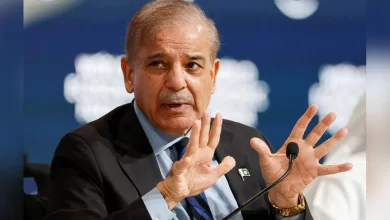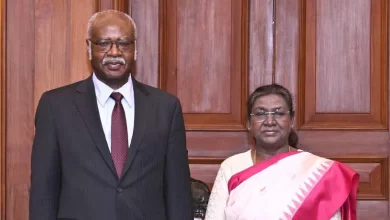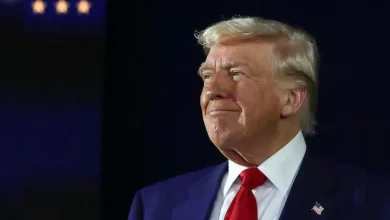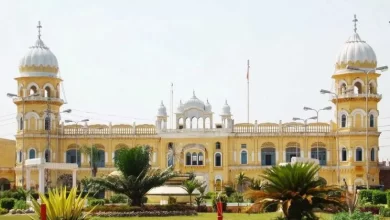Arab world up in arms, seeks public apology for BJP functionaries’ controversial remarks against Prophet; Qatar envoy blames ‘fringe elements’
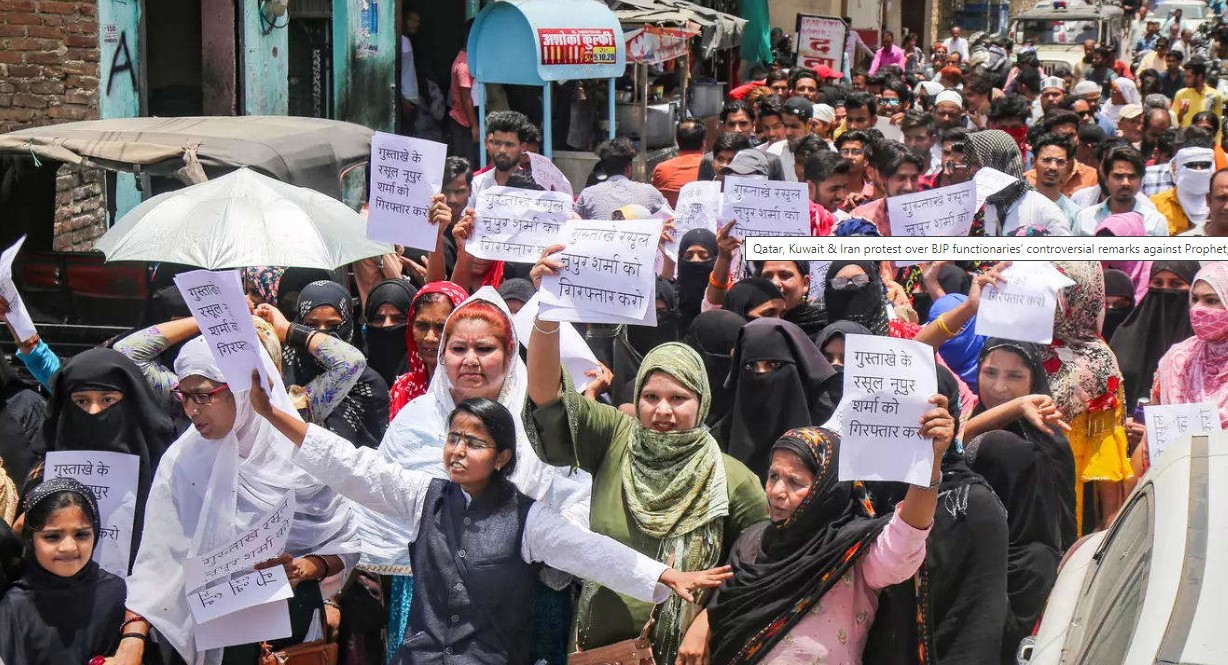
NEW DELHI: India on Sunday faced widespread anger in the Arab world over controversial remarks against Prophet Muhammad by BJP party functionaries. While Qatar welcomed the announcement of the party’s action against them, it also sought a public apology and condemnation from the Indian government as it summoned Indian ambassador Deepak Mittal to register a strong protest over the remarks against the Prophet.
Kuwait and Iran also lodged a protest with the Indian government, with the former demanding a public apology “on part of the perpetrator”. Saudi Arabia also condemned the remarks. Describing the comments as a war against every Muslim in the world, the Grand Mufti of Oman called upon all Muslims to “rise as one nation”. While other neighboring countries in the Gulf were also reported to have expressed reservations, India’s biggest problem came from Qatar, an important Gulf partner currently hosting Vice President Venkaiah Naidu.
A ‘Boycott India’ campaign trended on social media as Naidu arrived in Doha for a four-day visit. Despite a clarification that the BJP functionaries in question were “fringe elements” who didn’t represent the views of the Indian government, the Qatar deputy foreign minister Soltan bin Saad Al-Muraikhi summoned the Indian ambassador to convey its “total rejection and condemnation” of the controversial remarks to India.
“Noting that the State of Qatar is expecting a public apology and immediate condemnation of these remarks from the Government of India, pointing out that allowing such Islamophobic remarks to continue without punishment, constitutes a grave danger to the protection of human rights and may lead to further prejudice and marginalization, which will create a cycle of violence and hate,” said the Qatar foreign ministry in a statement, adding more than two billion Muslims across the world followed the Prophet and his message of peace, understanding, and tolerance.
The Indian embassy, in its response, said that Qatar had raised concerns about some “offensive tweets by individuals in India denigrating the religious personality” and that the Indian ambassador conveyed to Qatar that the tweets do not, in any manner, reflect the views of the Government of India. “These are the views of fringe elements,” it said.
“In line with our civilizational heritage and strong cultural traditions of unity in diversity, the Government of India accords the highest respect to all religions. Strong action has already been taken against those who made the derogatory remarks,” said the embassy.
The embassy, however, also suggested in its reaction that pro-Pakistan elements might be using the remarks to incite hatred and create differences between India and Qatar. Official sources said the online campaign against India was probably the handiwork of the same people. India is hoping the issue will die down soon as continued discord could threaten the “reset” in its ties with the Gulf States that the government believes has taken place under PM Narendra Modi, resulting in greater mutual trust and respect.
“Vested interests that are against India-Qatar relations have been inciting the people using these derogatory comments. We should work together against such mischievous elements who aim to undercut the strength of our bilateral ties,” said the embassy.
Qatar, however, said that the insulting remarks would lead to “incitement of religious hatred, and offend more than two billion Muslims around the world, and indicate the clear ignorance of the pivotal role that Islam has played in the development of civilizations around the world, including in India”.


